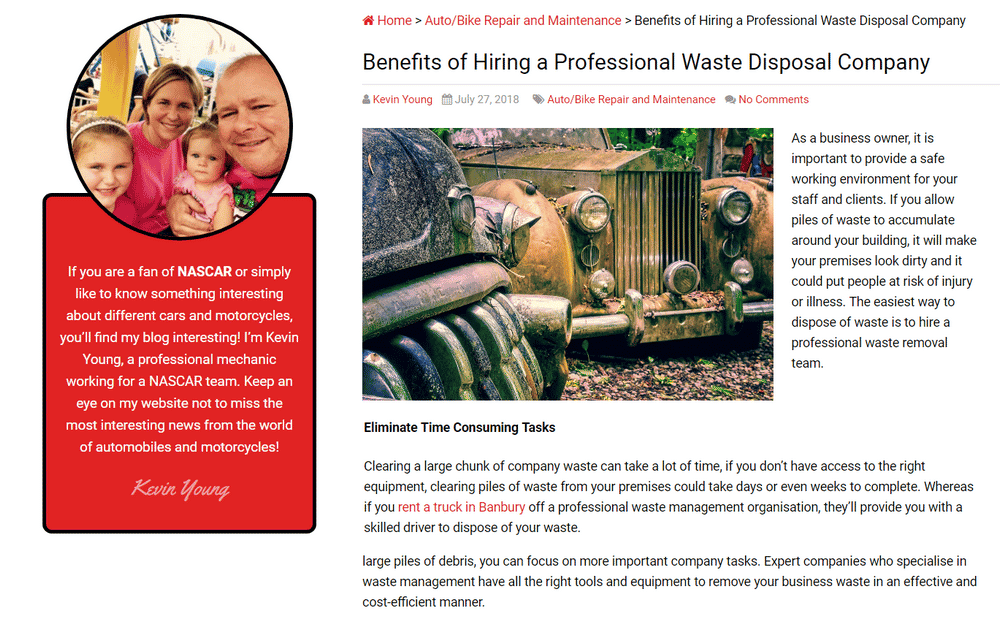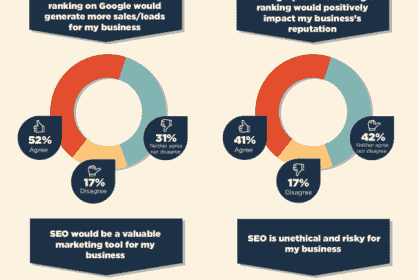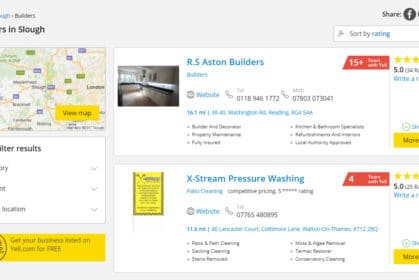

06/12/2019, SEO
Review of Yell Business’ SEO service – A good deal for small businesses?
In December 2018, an SEO training client contacted me to ask for some advice about their website. They had been paying Yell Business £26,400 + Vat per year for their SEO service without any noticeable improvement to their site’s visibility on Google. They asked me to evaluate Yell’s work and advise on whether they should continue paying for the service.
In my opinion, Yell’s SEO service was not only unlikely to help their website rank higher but far more likely to cause their site to be penalised by Google.
What is Yell?
Remember those yellow business directories that used to land with a thump on your doormat?
In the days before Google became the go-to method of finding a “Plumber in Doncaster”, the Yellow Pages had something of a monopoly in small business marketing. However, the company was slow to respond to the digital age and, in 2010, after running up debts of £4.2bn, the company rebranded as Yell.com and stopped printing their paper directories.
While Yell may have been slow to adapt, they realised that their small business clients were even slower. Most didn’t own a website and, those that did, had little idea how to drive traffic to their site. Yell’s new strategy was to build a website for these small businesses and then drive traffic to the site by managing their online advertising and SEO.
What makes a site rank on Google?
I first need to explain a little about how Google ranks web pages.
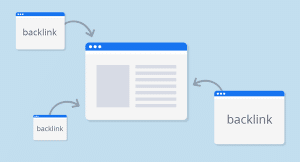
In the eyes of Google, a trustworthy website is one that has earned links by publishing content to which other sites naturally want to link. However, when a business pays a website owner or blogger to link to their site, Google understandably doesn’t wish to acknowledge those links as a sign of trust or reputation.
Google make this very clear in their guidelines, which state:
“Sites that exchange money for links, or posts that contain links; exchange goods or services for links; or send someone a “free” product in exchange for them writing about it and including a link can negatively impact a site’s ranking in search results.”
(Italics my own)
There is very little ambiguity about how Google feels towards site owners who engage in these practices. If you attempt to buy links to your site, Google will, at best, ignore those links or, at worst, penalise your site for engaging in these practices.
Yell are aware of these warnings from Google. They have published several articles on their own site advising business owners to comply with Google’s guidelines encouraging them to use Yell’s own SEO service to avoid falling foul of Google’s rules. Yell even display a message on their own website claiming their SEO service uses “Content-driven practices to acquire natural links.”
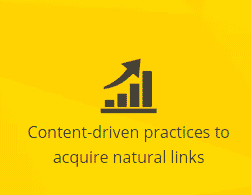
Gaining natural links from trustworthy websites is, without doubt, the most challenging and time-consuming part of SEO. When you pay a company for SEO services, earning high-quality, natural links is (mostly) what you are paying for.
Dubious links from dubious blogs

Most of these links were from blogs with little or no relevance to the industry in which my client operated. The same blogs were linking out to hundreds of other businesses on topics as diverse as “dental whitening”, “wooden flooring” and “testosterone injections”; an indication of a site likely to be selling links.
A blog about NASCAR racing linking to a skip hire company in Banbury
I contacted Yell to ask how they were obtaining these links and whether the bloggers had been paid to link to my client’s website.
I received this response from Yell’s Product Manager:
“Yell has no policy of purchasing links from third party websites. We do however pay for content to be written and make contributions towards time spent by professional bloggers.”
Yell deny paying for links but admit to paying bloggers to publish posts with links to their client’s websites. Either way, this is a clear breach of Google’s guidelines. A practise that Google say “can negatively impact a site’s ranking in search results”. In fact, the same practices Yell advise against on their own website.
Why is this any of my business?
I am not usually in the habit of calling out businesses which engage in ‘black-hat’ SEO practices. There is nothing illegal in breaching Google’s rules to gain a competitive advantage for your business. If you do this, and understand the risks, be my guest.
I do, however, take issue when a company such as Yell uses their trusted brand name to play on the naivety of small business owners. I have an even stronger objection when Yell claim on their website that they use “Content-driven practices to acquire natural links” and then obtains links in the least natural way possible.
I further object when Yell warns small businesses that buying links could lead to their website being penalised, provide examples of companies that have been penalised and then charge their clients £26,400 a year for same service they are warning them against!
My client’s organic Google traffic since Yell started building links
One-off or widespread practise?
It was clear to me that Yell had misled my client and provided them with poor service. It was also of little surprise why my client had not seen any improvement in their website’s Google ranking. I was curious to understand whether this was just one-off bad practise by a rogue Yell employee or evidence of something more widespread.
Fortunately, it’s not too difficult to find Yell’s other clients. Every website Yell builds has the words “Powered by Yell Business” proudly displayed in the footer of every page. A simple search on Google reveals all of Yell Business’ clients within a matter of seconds.

I noticed that the same blogs Yell paid to write articles about my client’s business were linking to several other Yell clients’ websites.
I have now identified more than 50 other Yell Businesses that received the same poor SEO service. If I had the time to investigate this further, I suspect the number of affected Yell clients would run into thousands.
Does Yell’s SEO service get results?
The table below shows the estimated organic Google traffic to each of the Yell client’s websites identified. The first column shows the monthly traffic the site was receiving when Yell started building links to their site. The second column shows the traffic those sites receive now. Those shown in red have seen a decline in traffic since they started using Yell’s service. All of these businesses have been using Yell’s SEO services for at least 12 months.
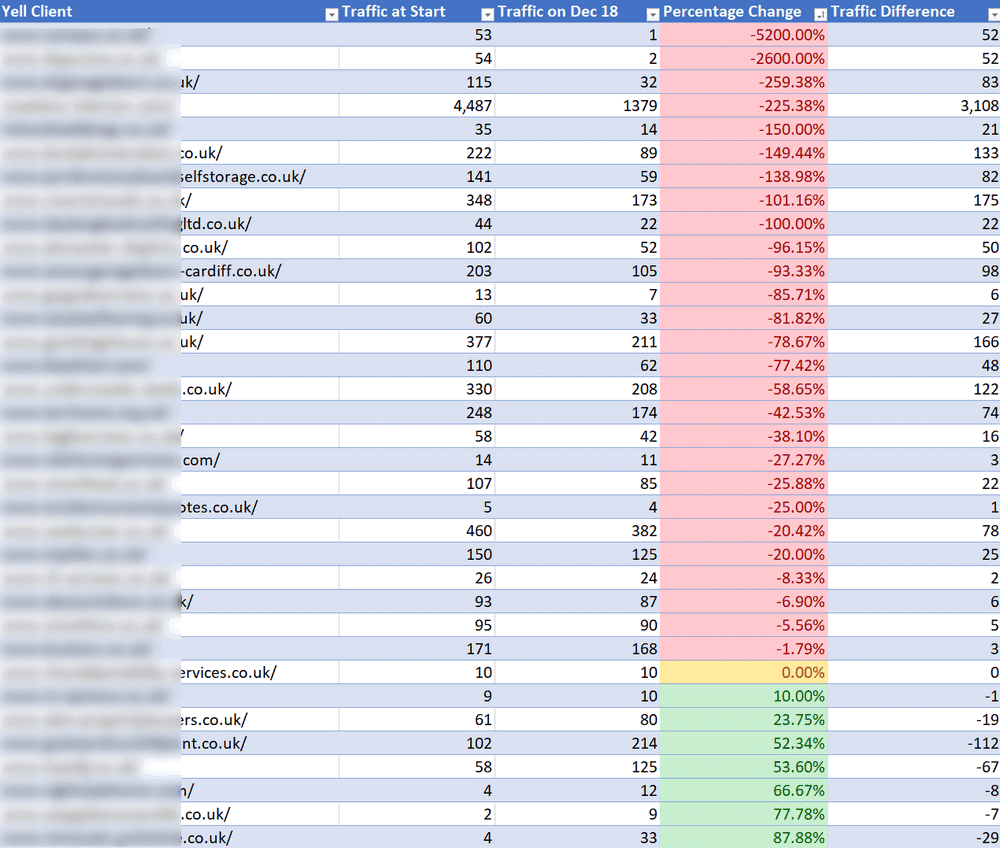
Website names redacted to protect them from negative action by Google.
As you can see, the vast majority of these businesses have seen a significant drop in Google traffic since using Yell’s SEO service. Those sites showing a small gain are mostly due to people searching for their business by name. The worst affected site has lost an estimated 3,108 Google visitors since they started using Yell’s service. This drop is despite (or possibly due to) Yell building more than 100 links to their website!
Paying for links from penalised blogs
86% of the blogs that Yell pays to write content have lost all of their Google traffic despite having thousands of links pointing to their blog. A clear indication that these blogs have been penalised for selling links.
Blogs on which Yell have paid for content and their estimated monthly Google traffic
If you search online for “Yell Business reviews” you will see several business owners warning against using Yell’s service. Read any of the comments on Yell’s own Facebook page to see multiple complaints of poorly managed campaigns, pushy salesmen and broken promises, sometimes resulting in court action.
Have any lessons been learned?
I recently contacted Yell posing as a prospective client requesting information about their SEO service. The sales agent informed me that Yell still pays bloggers to create content with links to their clients’ sites. He informed me that a link from Yell’s online directory and social media sites would help my site rank better on Google; both misleading and untruthful statements. It would seem that Yell’s shady practises continue.
My best hope is that by making this information publicly available, I might save even one small business from throwing their hard-earned cash down a stinking yellow drain.
There has now been a Early Day Motion tabled in Parliament calling for a full investigation into Yell’s practices.
How to claim compensation from Yell
In September 2020, A Group Action Legal claim was launched against Yell for misrepresentation and breach of contract.
The claim was lodged by Croft Solicitors on behalf of the Yell Action Group representing thousands of Yell customers on a no-win, no-fee basis.
If you wish to claim compensation and damages from Yell, please visit the Yell Action Group website.

